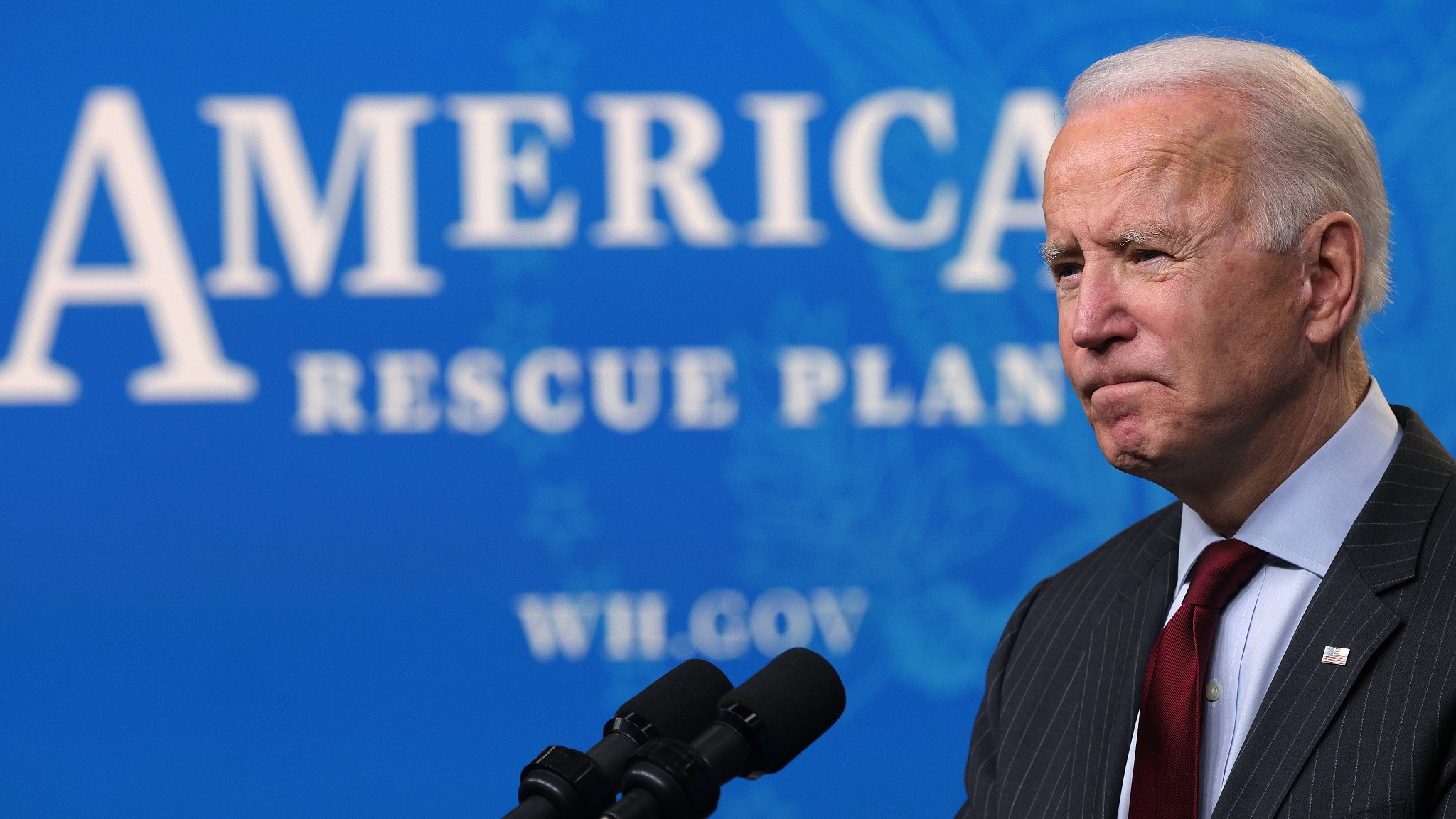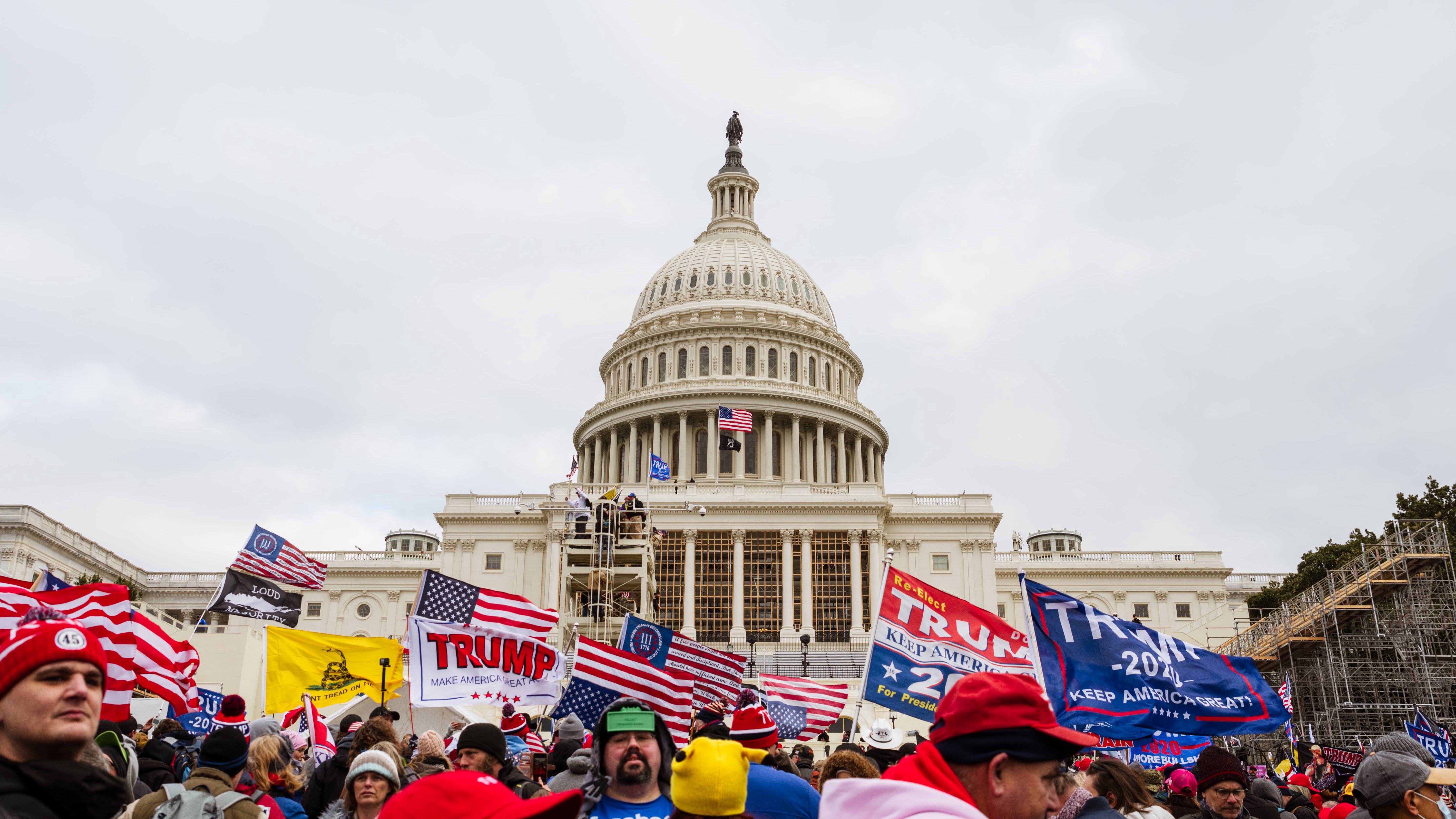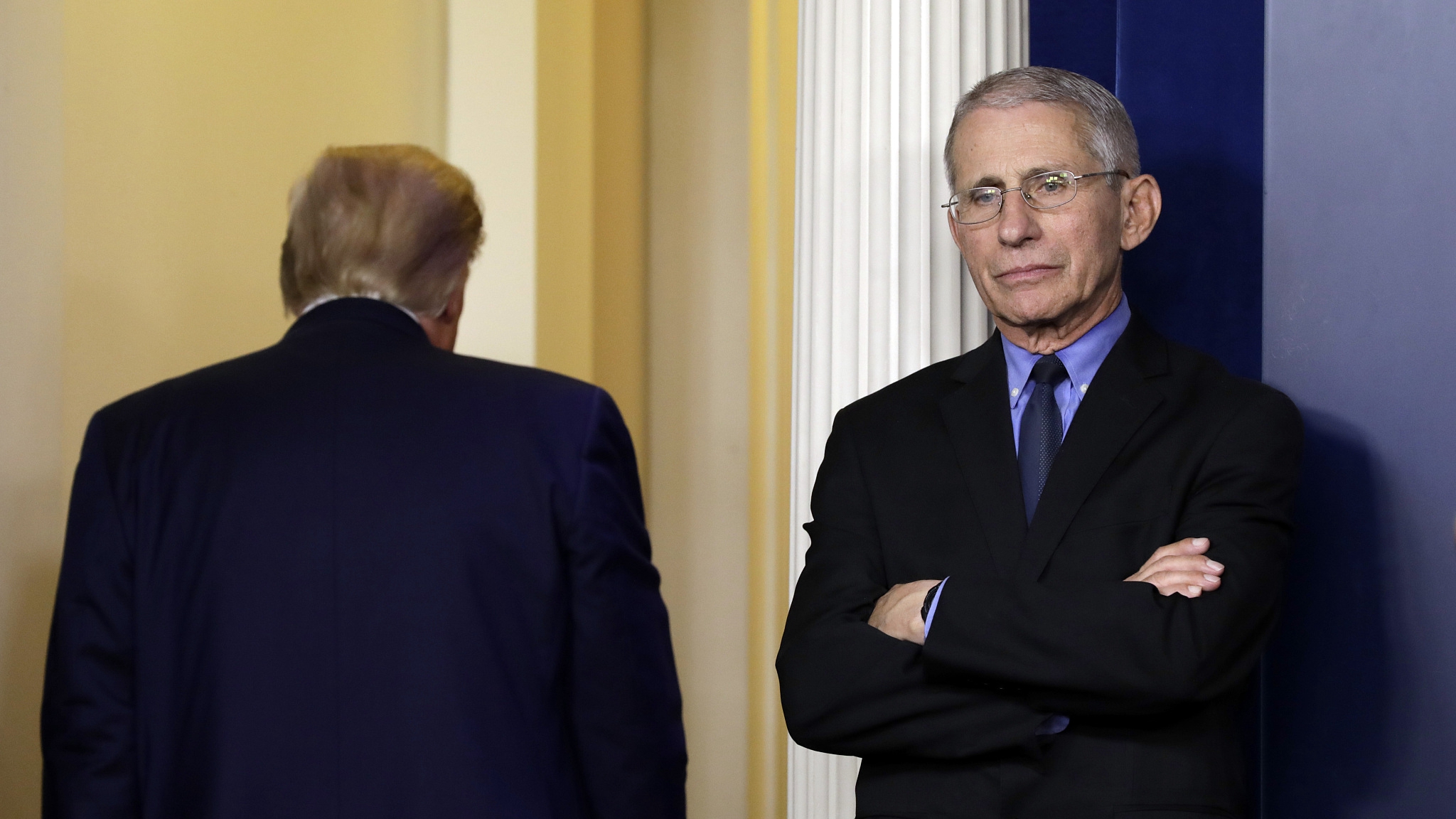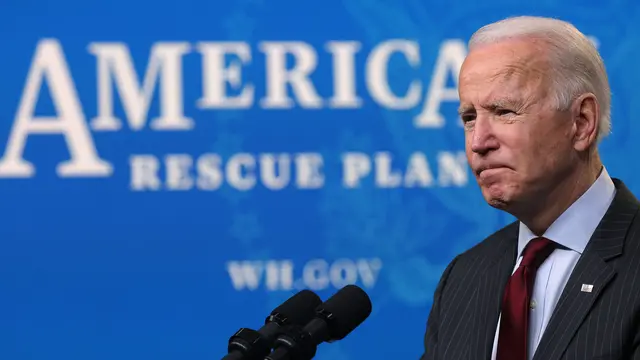
File: U.S. President Joe Biden speaks during an announcement related to small businesses, in Washington, D.C., February 22, 2021. /CFP
With the number of COVID-19 hospitalized patients in the past week reaching 66,000, the new high since February, and a daily average confirmed cases of over 100,000, the U.S. seems has fallen into an endless fight with the COVID-19 pandemic.
According to data from the WHO, as of August 11, 2021, the U.S. had reported 35,824,366 cumulative confirmed cases of COVID-19, including 612,973 deaths. U.S., the most developed country in the world, ranks first in the world in terms of both numbers.
Considering the large contrast, a research jointly conducted by three think tanks - Chongyang Institute for Financial Studies under Renmin University of China, Taihe Institute and the Intellisia Institute - took an in-depth study on the poor performance of the U.S.
Titled "'America Ranked First'?! The Truth about America's Fight against COVID-19," the report published on Monday called the U.S. "the world's No. 1 anti-pandemic failure" and concluded that the leading reasons lie in three aspects, namely the partisan competition, economic-centered strategy and anti-science attitude.
Party first
Partisan competition is recognized as the direct cause of the U.S. anti-pandemic failure, said the report, pointing out that both Democratic and the Republican, the two major parties in the U.S., take COVID-19 pandemic as an opportunity to suppress the other party and gain popularity from the voters.
According to the report, the Republican states were facing relatively low pressure in the early days of the pandemic, thus, the U.S. government under Donald Trump's administration, chose to ignore the warning and tried to downplay the risk so as to keep the economy and stabilize the Republican base.
The intention can be noticed from Trump's repeated statements which claimed the risk of COVID-19 in the U.S. was "very low" and the virus was no different from an "ordinary flu." It is the party-first strategy let the U.S. constantly miss the window period for effective anti-pandemic measures.

Supporters of U.S. then President Donald Trump gather at the U.S. Capitol, January 6, 2021. /Getty
Despite the Democrats, which always stands at the opposite side of the Republicans, fighting back by slamming the Republican's response as leading to "catastrophic results," it spent more energy on arguing than actually fighting the virus.
"The two parties use the pandemic to demonize its rival. They take the pandemic control as a blame game and act solely on party's interest," said Wei Nanzhi, deputy director of the Social and Cultural Research Office of the American Institute of the Chinese Academy of Social Sciences.
The report further attributed the pandemic failure to the "systemic failure" where federal, state and local governments were struggling with clear divisions and even confrontation. "The U.S. was fighting against the pandemic under a 'disunited America' pattern of response to the pandemic," as it noted.
Capital first
The cause of such systemic failures, according to the report,is rooted in "the profit-seeking nature of capitalism."
Compared with the slow response to the pandemic, the U.S. acted much more swiftly when it comes to saving the stock market. The Federal Reserve took "extraordinary" measures which printed excessive money – nearly half of the amount it printed for more than 200 years in the past a year and a half – most of them flowed to the stock market to save it after the collapse in last March.
The excessive issuance of money inevitably caused inflation and "bubble" pressure both at home and abroad. Under the circumstance of the COVID-19 outbreak, the additional economic and social pressures brought by the inflation also broaden the gap between the rich and the poor, soared the commodity price, and eventually amplified the division and exacerbated political conflict and regional chaos.

Rectangles designed to help prevent the spread of the COVID-19 by encouraging social distancing line a city-sanctioned homeless encampment at San Francisco, U.S., May 21, 2020. /AP
A Brookings Institute survey released on May 6, 2020, showed that 17.4 percent of the households with children under 12 years old do not have sufficient food. A report from The Guardian last November also revealed that the need for food aid in the U.S. is 60 percent higher than it was before the pandemic.
Meanwhile, the wealth accelerated into the hands of a few since net worth of the 614 billionaires in the U.S. increased by $931 billion during the pandemic while poverty rate rises from 9.3 percent in June 2020 to 11.7 percent in November.
On the other hand, the U.S. was taking "selective treatment" in the anti-pandemic fight where the poor can't afford the treatment and the elderly were unable to receive medical care. "This (U.S. health care) was designed to protect the interests of capital, not the public interest," as the report pointed out.
Politics first
The anti-science attitude towards the pandemic is another barrier that hinders the U.S. from taking proper measures. And U.S. President Trump, as study from Cornell University showed, may be the biggest promoter of COVID-19's false information.
The study highlighted Trump impact on the spread of false information by noting that about 38 percent of the fake news about COVID-19 in English media mentioned Trump, starting from May 26, 2020.

U.S. infectious diseases expert Dr. Anthony Fauci (R) and U.S. then President Donald Trump after a press conference, Washington, U.S., March 26, 2020. /CFP
Citing Trump's remarks such as calling COVID-19 an "ordinary flu" and promoting medicines that may cause serious side effects, the study warned that the false information not only greatly mislead the American people and underestimated the risk of the virus, but many people are seriously hurt by trusting their absurd remarks.
Apart from the ignorance of science, the U.S. is also keen on politicizing scientific questions in order to meet its political ends. The matter of origin tracing is a good example.
According to the report, Washington has been presupposing the conclusion of "Wuhan laboratory origin" and obstructing the scientific tracing work from the very beginning.
It rejected WHO's investigation result which concluded the possibility of the virus originating from laboratory is "extremely low" and demanded a "Phase II tracing plan" that again focuses on the "lab leak theory," contradicting the WHO's previous conclusion.
"The anti-science manner of the U.S. reflects its hegemonic logic which prioritizes its own interests," said Wei when asked comments on U.S. proposal of origin tracing.
Holding the principle of partisan competition first, capital first and political blaming game first, just as the report pointed out, it is no wonder that the U.S. ranks first in anti-pandemic failure.
 简体中文
简体中文





